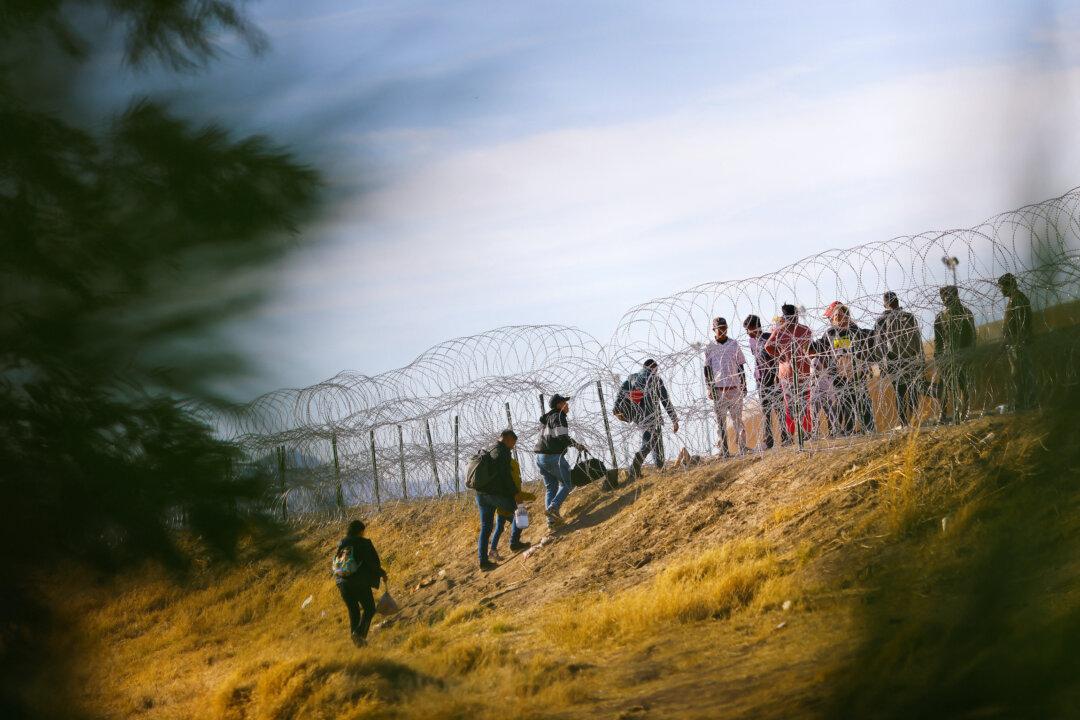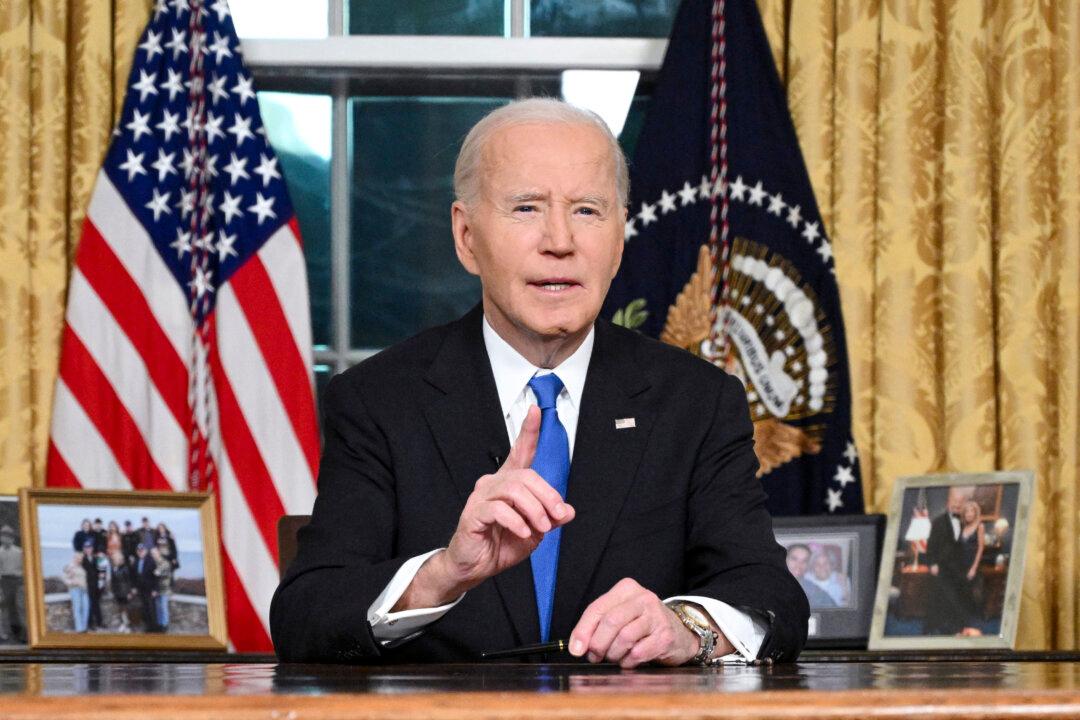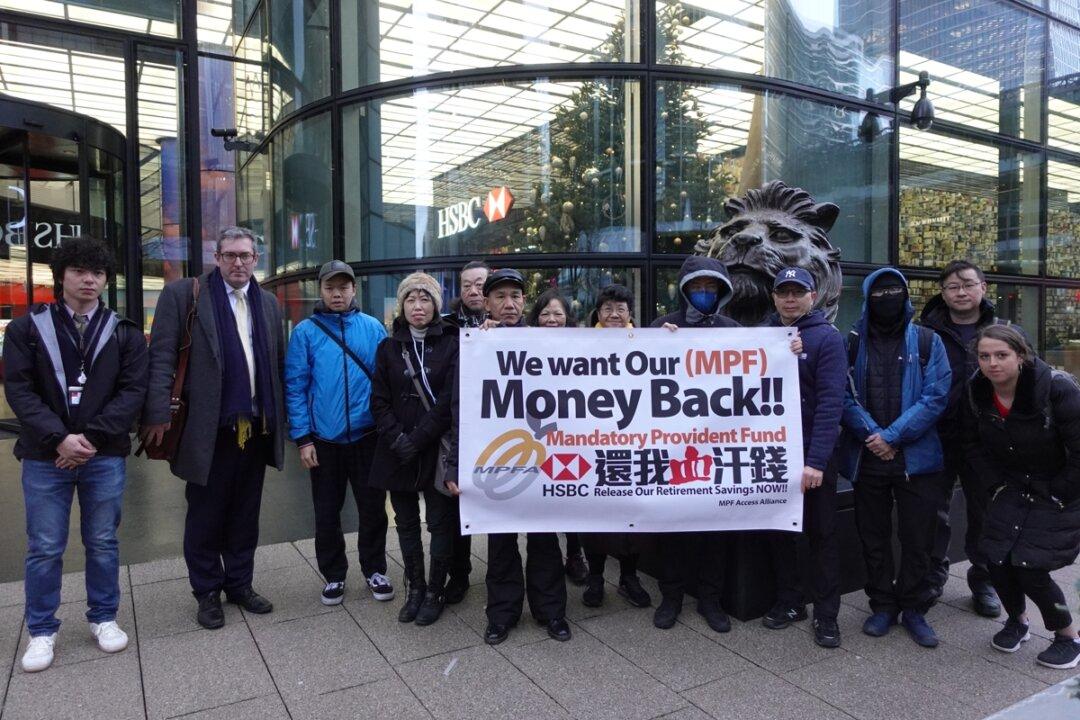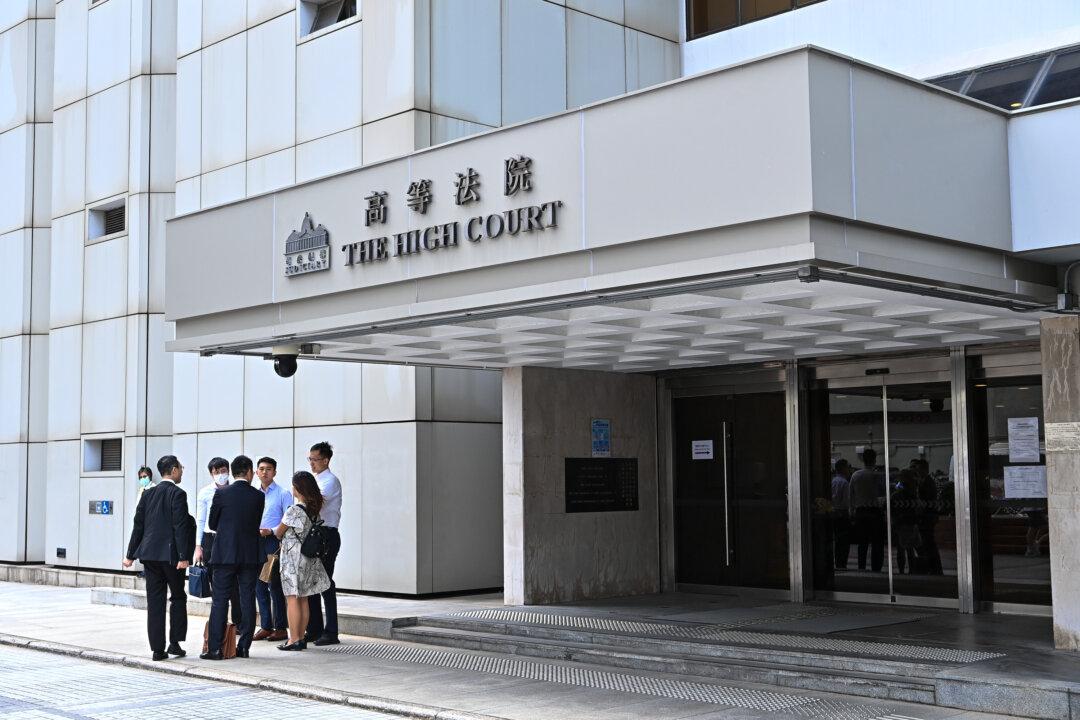“The place to go may not be heaven, but the place to escape must be hell.” Chen Weijie, a former Shenzhen fitness coach who followed the popular stowaways route to the United States in May, said that he never intends to return to China unless there is no more Communist Party rule.
Chen Weijie is from Fenyi County, Xinyu City, Jiangxi Province. His mother passed away when he was young. After finishing junior high school, he set up a stall and sold things on trains. Having earned some money, he went to a technical secondary school to finish his studies.
In 1999, just after graduation from technical secondary school, his father died of a cerebral hemorrhage. The Chinese Communist Party (CCP) persecuted Chen’s elder brother and family for many years because of their religious beliefs. The elder brother and his wife died due to this misfortune, and their two children became orphans. The two daughters of his uncle’s family have also been imprisoned several times, and they are still afraid to go home.
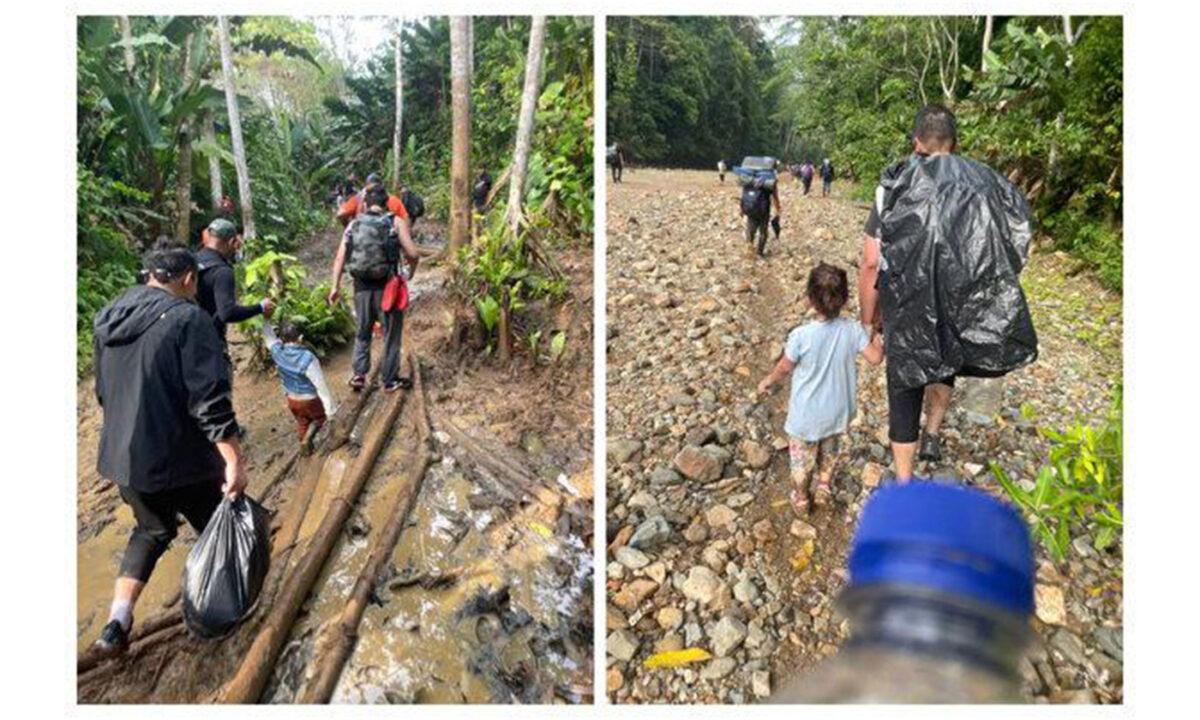
Chen Weijie remembers in 1988, when he was still a child, his uncle’s family, because of being found to disobey one-child policy, had his newly erected brick house demolished by the family planning bureau. It was a house funded and built by the two brothers, his father, and uncle, and it was then divided into two, with one half being demolished. They also took away the pigs raised by Chen’s family that were intended for their annual Chinese New Year feast.
He also heard that the family planning bureau once caught a seven to eight months pregnant woman, and they kicked her belly to kill the baby and let the baby flow out. “Hearing that the family planning bureau could do such evil things during childhood, I felt [living in such an environment] I am sure to suffer from depression for the remaining years there,” said Chen.
Participating in Hong Kong Pro-Democracy Movement
When he was young, Chen’s father asked some Kung Fu masters to teach him martial arts. He also enjoyed working out and has maintained a very good body shape and weight over the years. In 2018, he went to Shenzhen from Nanning, Guangxi, to work as a coach, and had the chance to go to Hong Kong to attend rehabilitation classes and teach some courses such as strengthening of the shoulders, the neck, and the like.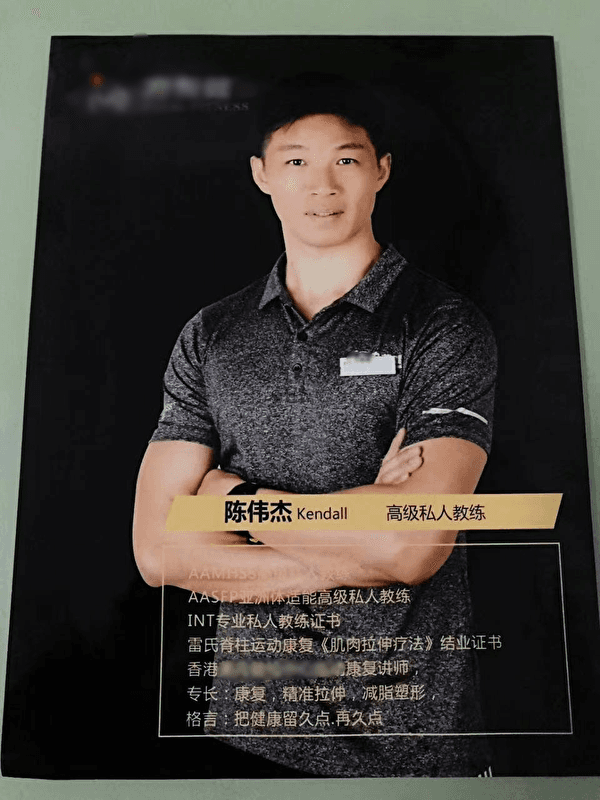
In 2019, during the anti-extradition movement in Hong Kong, Chen was in Hong Kong for one day a week. And whenever there was a rally during his stay there, he would go to it. “I had only one sole intention at the time, that is, to do whatever the CCP didn’t want me to do.”
“Because I saw the real freedom, true democracy, the rule of law, in Hong Kong. I felt that the past few decades for me seemed to be wasted, and a lot of things were not like what our newscasters said on the mainland news channels.” Starting in 2018, he insisted on using VPN to bypass the firewall to see the truth.
During the rally, he found many Hong Kong people did not trust Putonghua-speaking Chinese. So, he shouted the slogans “The CCP is an evil organization” and “Heaven helps eliminate the CCP,” just to make his stance clear to everybody there.
“I’ve never before in my life been so deeply touched as by Hong Kong. When I heard ‘Glory to Hong Kong,’ there would be tears in my eyes. I saw everything that happened there, including those scenes where some girls were killed by being thrown from upstairs....” he said.
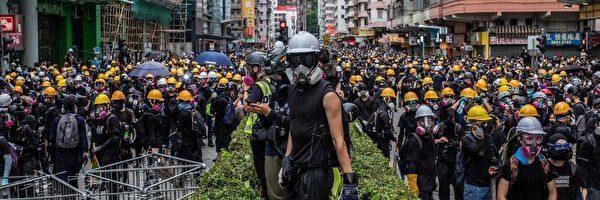
He also joined the New Year’s Day Parade on Jan. 1, 2020. Before that, he had already participated in four or five parades, large and small, and he was also one of the frontline daredevils. He wore a mask, a hat, and a pair of goggles. He held a Molotov cocktail in his hand, dragged along an umbrella, and often led the charge up the front.
“We will put some bricks on the road. When they (police) run over and kick the bricks, they will fall. After the police vehicles come, they will need to slow down too. Molotov cocktails are ignited through the bottle openings. And when it is thrown toward the police, it will catch fire on the ground, preventing them from charging forward. Because if we were caught, we might all be beaten like hell.” Chen recalled that once it was extremely dangerous, the police suddenly accelerated, causing them almost no way to escape, with one or two of them caught. Sometimes the police would outflank them from the sides.
Desperation, the Driving Force to Escape
In January 2020, Chen returned to Jiangxi and opened a hotel with friends in Xinyu City. But after several years of the pandemic, running hotels and restaurants are all loss businesses. Because all customers must wear masks when entering stores and scan the QR code, pandemic prevention personnel come to check every day, resulting in no customers coming to the restaurants.In August 2022, Chen worked as a maintenance worker at a company in Hezhou, Guangxi. Unfortunately, he fell from a height while welding and was sent to the ICU and stayed there for 15 days. The upper end of his right thigh suffered a comminuted fracture. He stayed in a separate room in the hospital but was forcibly discharged at the end of the year. He rented a house through an acquaintance, and his health did not recover, so he could just lie in bed every day.
Later, he went around defending his rights on a crutch and appealed for compensation for the cost of treatment. “No one answered me. [Departments] just passed the ball around. The Labor Bureau passed to the district government, the district government to the legal aid, and finally told me to go to the responsible unit. On March 13, 2022, he went to the rooftop of the Hezhou District Government building to appeal for his rights.
When the district government saw that the incident had become a big deal, with the arrival of emergency firefighters, armed police, and medical staff, they found the company boss, who promised to pay 180,000 yuan (US$25,000) compensation in one lump sum. On the same day, he was detained by the Public Security Bureau and was forced to leave his iris image, DNA, gait, and three-minute voiceprint.
At that time, through YouTube, Chen found that he could take the stowaway route to the U.S. He thought it would be fine to go to the United States. Even though the follow-up surgery and treatment would cost a lot, there was no point in getting entangled with the Chinses authorities anymore. In April 2023, a few days after receiving the money, he was ready to leave for the United States.
As a first attempt, he tried to leave through Hangzhou Airport and said he was leaving for medical treatment but was stopped by customs. He slumped on the ground and lost his crutch, “It’s all over, I won’t be able to leave the country for the rest of my life.” He felt a little devastated.
The second time, he followed the advice of his friends in the United States and flew first from Shenzhen to Beijing, then from Beijing to Turkey. All tickets were upgraded to first class. He bought a fake gold necklace and wore it around his neck. When he passed the customs, he dressed a little up-market, wore sunglasses, and looked more like a tourist. This helped as the customs were not as vigilant as before.
Matter of Life and Death Along the Route
At the foot of the mountain in the Panama rainforest, he came across many indigenous people who seemed honest and lived very simple, backward, but natural lives. “They are an ancient and primitive race. For example, they killed a crocodile and just let it rot. They didn’t know how to use it and just let the vultures come and devour it.” Chen lamented that nobody could imagine their existence if it were not for the detour.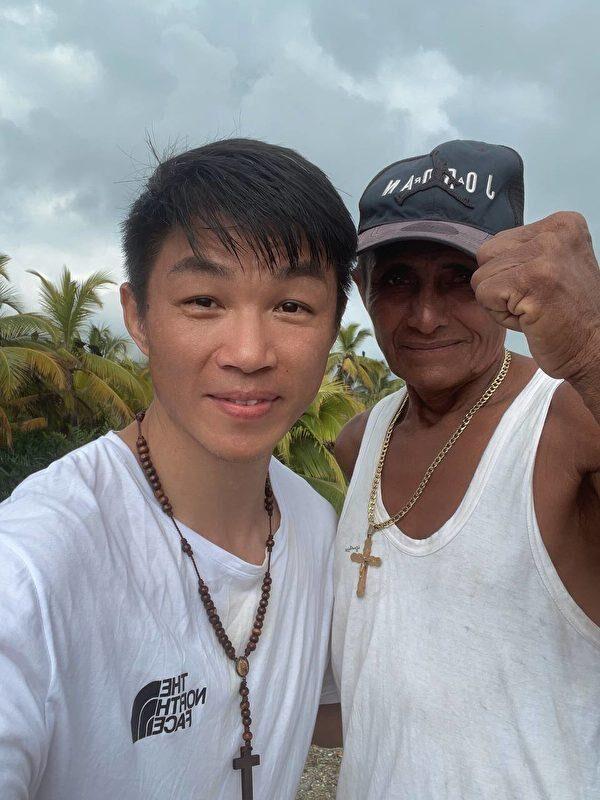
After one night at the campsite, he headed into the rainforest the following day. “The trek through the Panama rainforest is arduous. I nearly didn’t make it through the 70-plus kilometers (43 miles) because there are steel plates, screws, and steel wires in my legs [from the accident repairs], and it hurt after walking for a long time.”One elderly couldn’t walk anymore, so he paid four people to carry him. A poisonous snake bit another person, and wild boars attacked some.”
“I walked for two days and three nights. Sometimes it rained heavily, and I couldn’t keep my eyes open. I also carried an eight-year-old child. His father’s shoes slipped, his grandpa lost strength, and his mother could not manage the task. I just walked extremely slowly, step by step, especially uphill. It was windy, and the guide warned that branches could fall from the tree tops and they would hit our heads. In the end, we came out of the rainforest with all the luck.”
Along the way, Chen offered help to many people. He made some beef jerky at the restaurant and took it with him. He also took water purification tablets, plastic cups, quick-drying clothes, non-slip shoes, and a tent. Even so, his body was often wet, and his mobile phone got wet too. He saw many South Americans, including babies and children, and some women covered with headscarves. They had nothing to eat, and Chen gave what he had to those in greater need. In Tapa, many people sat near the bus stop, but they did not have money for the ride and also no money for meals. Chen gave them the money for that.
“In fact, it may only cost RMB 60,000 to 70,000 (US$ 8,400 to US$9,800 ) to get to the U.S., but I spent RMB 120,000 to 130,000 yuan (US$16,800 to US$18,300). Because first, I don’t value money very much, and second, I think money can do more meaningful things. For me, buying a pack of cigarettes for US$10 is good enough, but giving it to someone who has no food and no place to live, he will be happy for a day or two.” Chen took up Christianity in recent years, believing the world should be full of love. Individuals should be kind to each other.
When they arrived at the first refugee camp, it followed that the government would send a car to take them to the second camp. But to leave quickly and not stay overnight, they planned to hire a car to the second refugee camp at night. But they were deceived and were asked to get out of the car not long after departure. They walked for dozens of kilometers in slippers; some were barefooted, with large blood blisters on their feet and even broken toes.
They slept outside the refugee camp for one night and reported to the camp the next morning, and then the government arranged a bus that took them to David. “It’s getting better and better when you get to David. We can find restaurants, B&Bs, and restaurants run by Chinese people in many places. They will help us exchange foreign currency and help us a lot,” Chen said.
Taking a boat in Honduras can also be dangerous. “In the last few days, 30 people packed inside a boat. The boat capsized, and the smuggler lead didn’t dare to rescue them because they were illegal immigrants. Twenty people fell into the water, and one probably fainted, drowned, and died.”
The most dangerous things happened in Mexico. Gangsters and black police search you along the way, and they can find your money wherever you hide it. So, everybody kept a few dozen dollars each time just for the search and expected it to be confiscated and hid most of the money with some local people. “This is what we have experienced. They just want money. First, they don’t want your mobile phone or your passport. They just want your money.”
They took the bus from Mexico City to Mexicali, which lasted three days. They gave the gang six hundred dollars, and the gang gave them an armed escort to the U.S. border. They walked directly on the beach when it was dark. After crossing the U.S.-Mexico border, the U.S. police saw them and sent them to an immigration center.
Inside a Free Country
Maybe they saw that Chen had an injury on his thigh; he was only locked up for one day before he was released. Chen Weijie is now learning massage for a living in New York.He said that every day in the United States is free and happy. He feels that the price there is low, and there are people who care about others. “I can apply for a free medical card with a passport. What a great country, I am still a refugee! The eight-year-old child I helped in the rainforest and their family went to California. They sent a message to the group, saying that their son got the welfare benefits of the United States. The U.S. government sent two shopping carts of things, and he found it too embarrassing to accept them.
“Yesterday, I made $160 for a day’s massaging work and felt very happy. Today I paid $4 for three catties of cherries (4 lbs). I dare not buy them in China. Beef is also cheap. It costs 58 yuan (US$8) in China for a catty, while it is just over US$5 a catty (1.3 lb) here. I am just so lucky to earn U.S. dollars and spend it here.
“I went to an Adidas discount store to buy some shoes. Forty or fifty dollars already gave me a pair of really comfortable Adidas-branded shoes. I can’t afford such with three days of salary in China. Here I can buy four or five pairs with my one-day salary. The same is true for mobile phones. I can buy four or five iPhone 14s with a month’s salary, when I can buy just one with four or five months earnings in China, as a good comparison.”
He said that in China, there is an evil political party that made him so unhappy since childhood. “I have a chef’s certificate, can operate an excavator, and can be a welder, but I can’t even support myself in China. I felt very sad. Should I hate myself or someone else? I think It’s just not too good there.”
On June 2, he participated in a parade in Manhattan, New York, to commemorate the 34th anniversary of June 4th, and walked to the CCP’s Consulate General in New York. Whenever he sees NTDTV or The Epoch Times programs on Twitter or Facebook, he immediately gives them a like and reposts them. “I may not be able to play any role, but I want to do what I can do,” he said.
